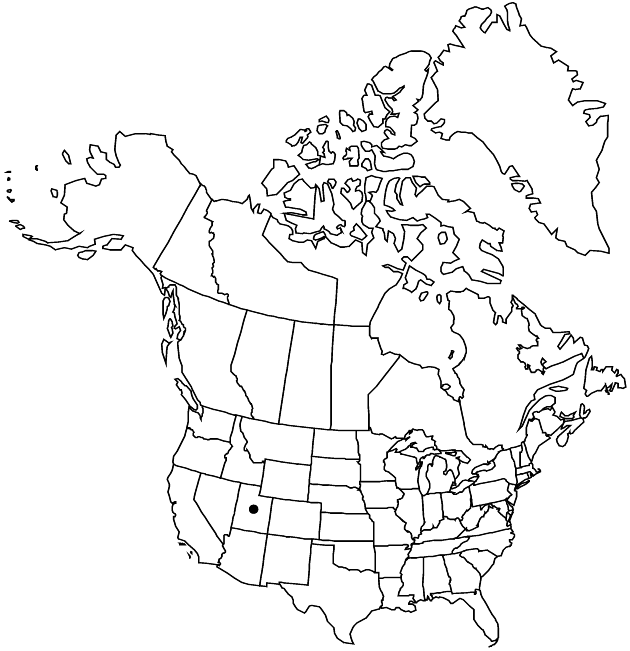Difference between revisions of "Xylorhiza linearifolia"
Sida 20: 145. 2002.
imported>Volume Importer |
imported>Volume Importer |
||
| Line 61: | Line 61: | ||
|publication year=2002 | |publication year=2002 | ||
|special status=Endemic | |special status=Endemic | ||
| − | |source xml=https:// | + | |source xml=https://bitbucket.org/aafc-mbb/fna-data-curation/src/2e0870ddd59836b60bcf96646a41e87ea5a5943a/coarse_grained_fna_xml/V19-20-21/V20_932.xml |
|tribe=Asteraceae tribe Astereae | |tribe=Asteraceae tribe Astereae | ||
|genus=Xylorhiza | |genus=Xylorhiza | ||
Latest revision as of 20:06, 5 November 2020
Subshrubs, 15–35 cm. Stems branched mostly in proximal 3/4, puberulent to coarsely stipitate-glandular. Leaves: blades linear-oblong to linear-lanceolate, (2–)2.5–5 mm wide, bases truncate or rounded-auriculate, margins flat, usually entire, rarely few-toothed, faces puberulent to coarsely stipitate-glandular. Peduncles 3–11 cm. Involucres 10–17 × 15–30 mm. Ray florets 13–21; corollas light blue to white. Style-branch appendages slightly shorter to ± equaling stigmatic lines. 2n = 12, 24.
Phenology: Flowering Apr–May(–Jun).
Habitat: Deep canyons, sands, and clays
Elevation: 1300–2000 m
Discussion
Xylorhiza linearifolia is known from Garfield, Grand, San Juan, and Wayne counties. Plants with few-toothed leaf margins may be indicative of hybridization with X. tortifolia, which is sympatric with X. linearifolia in the southern part of its range.
Selected References
None.
